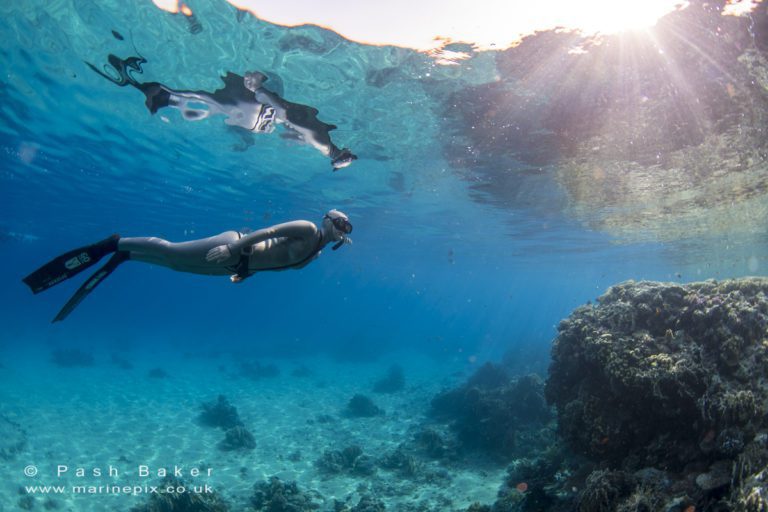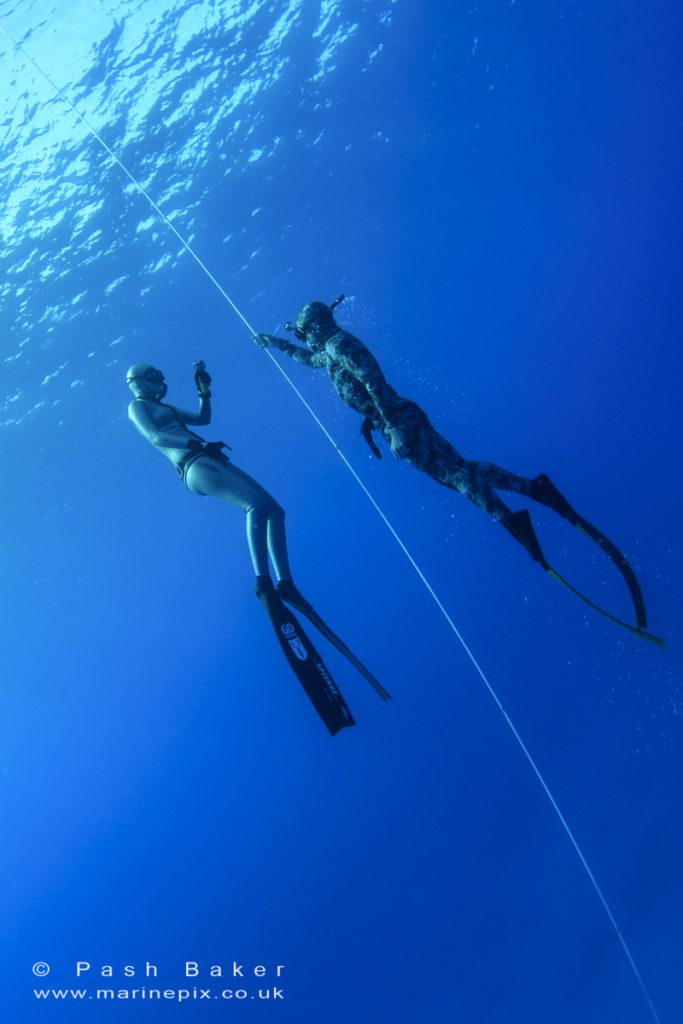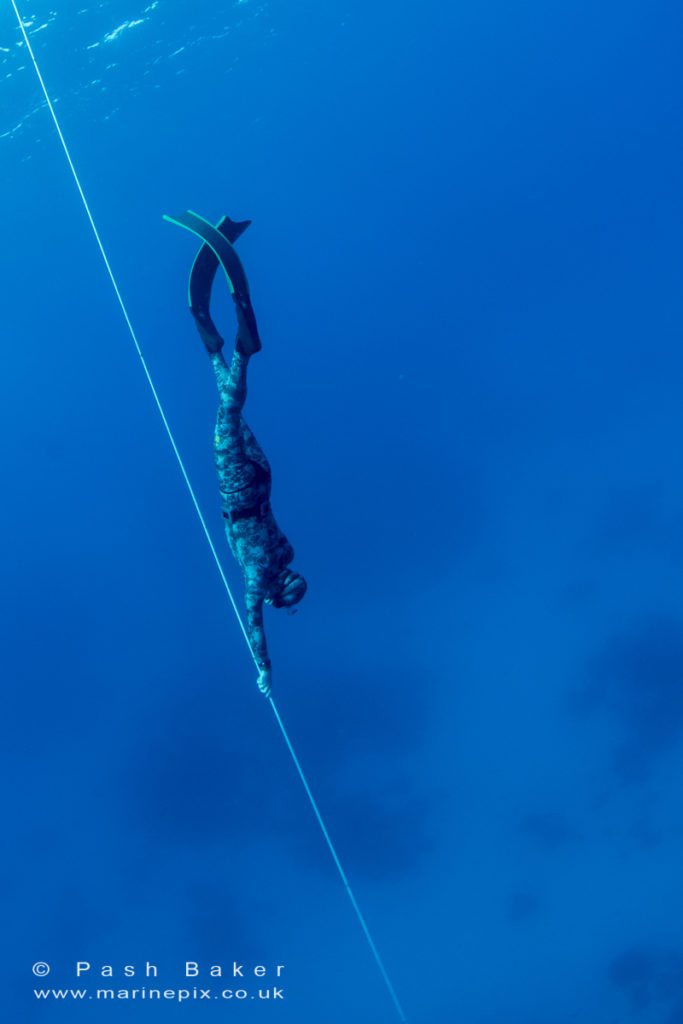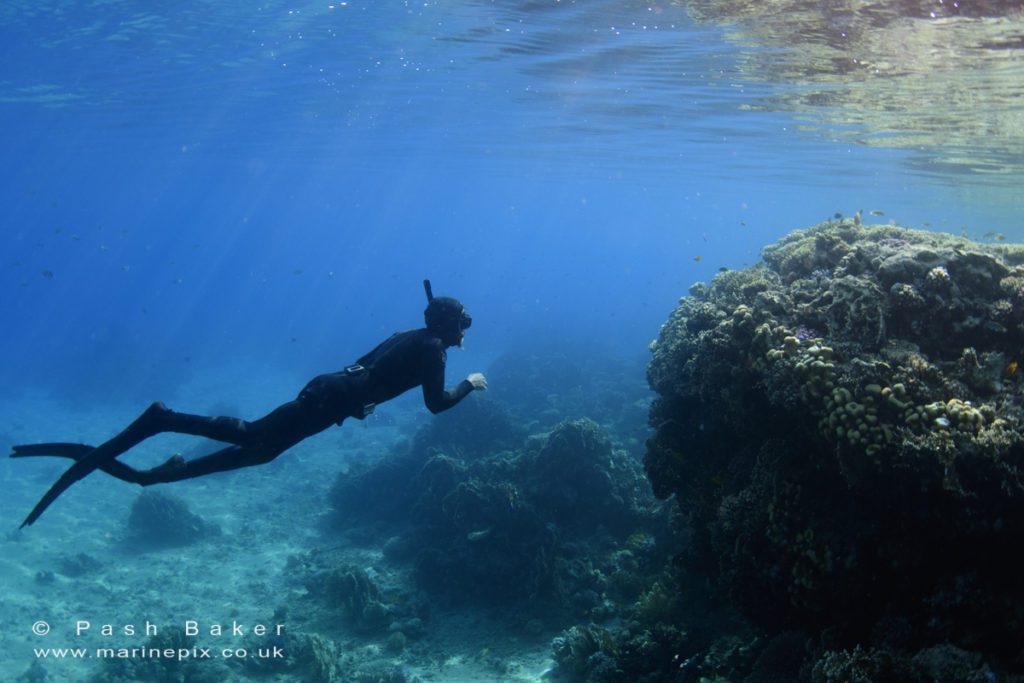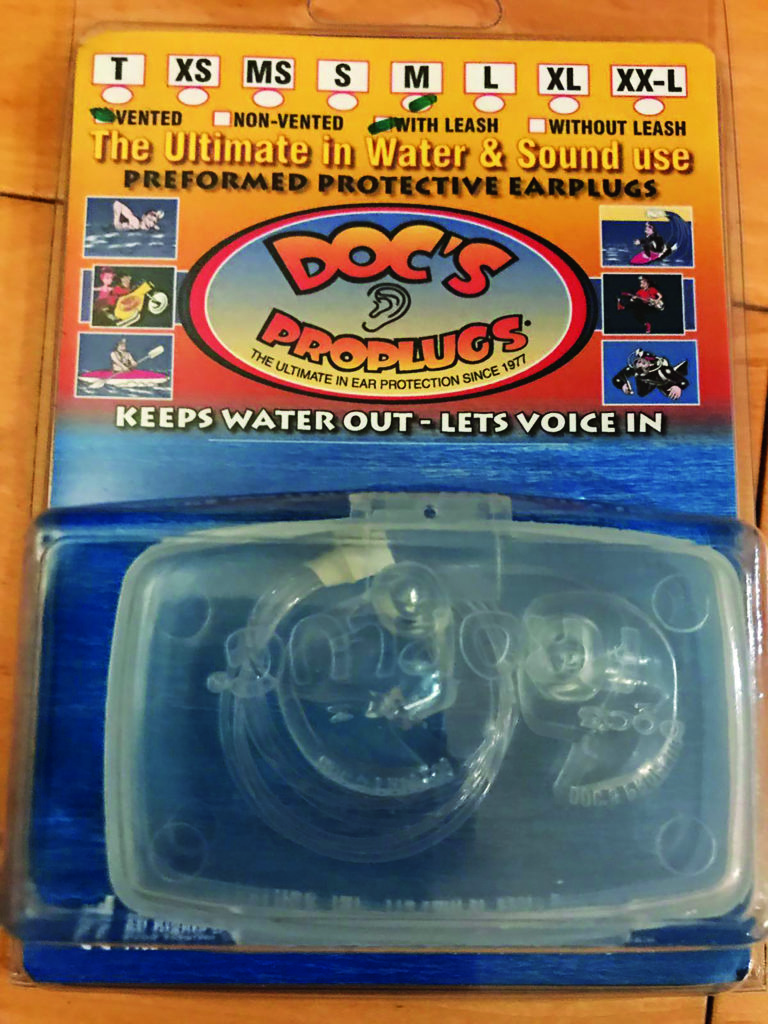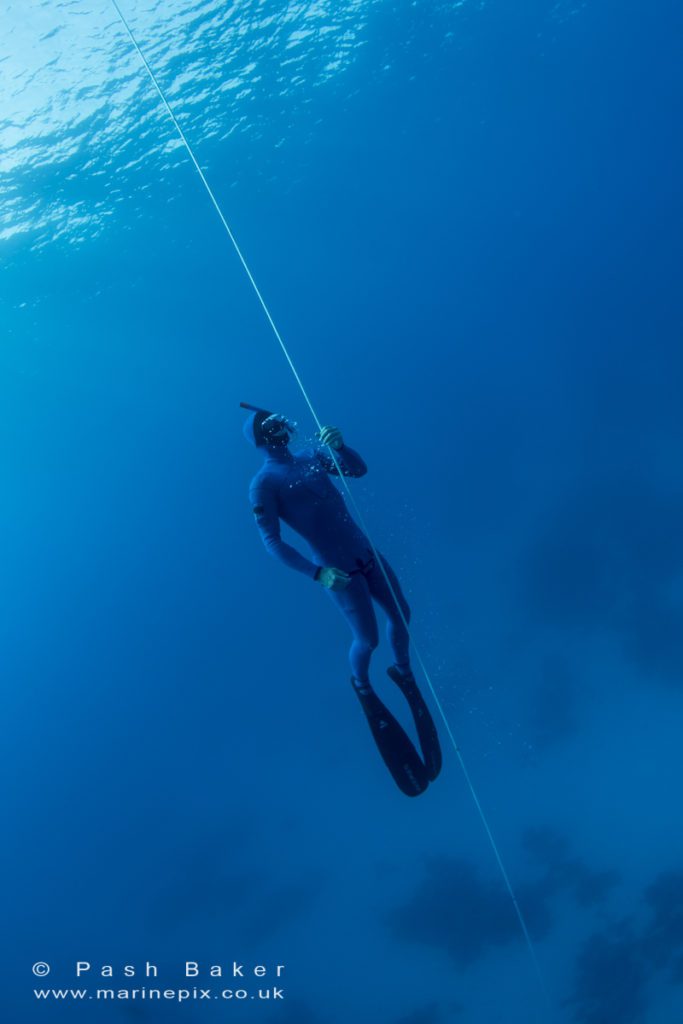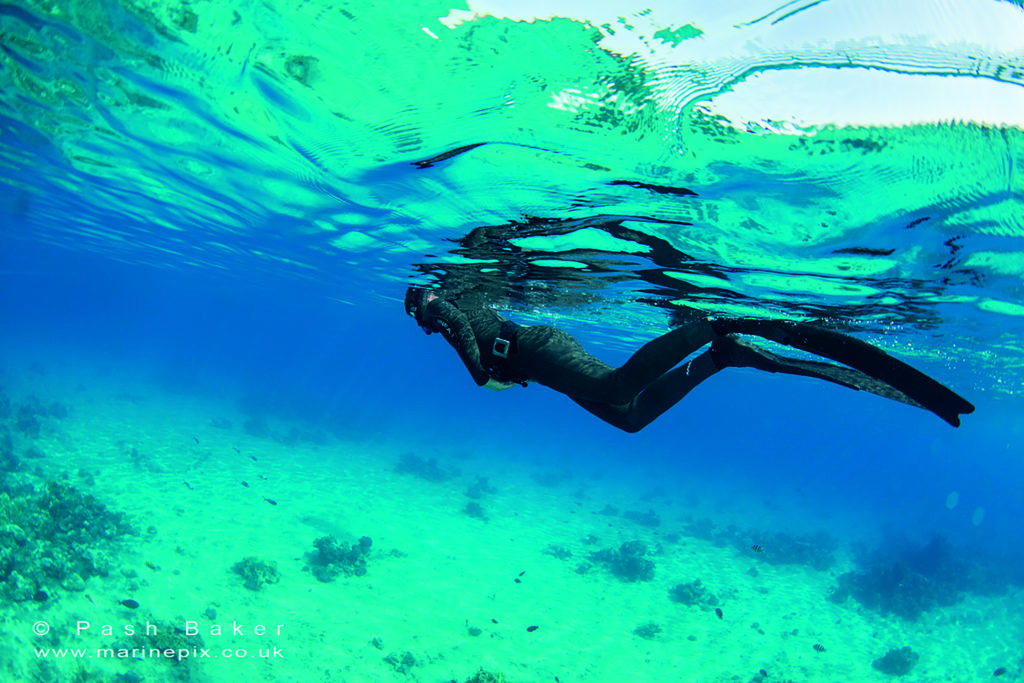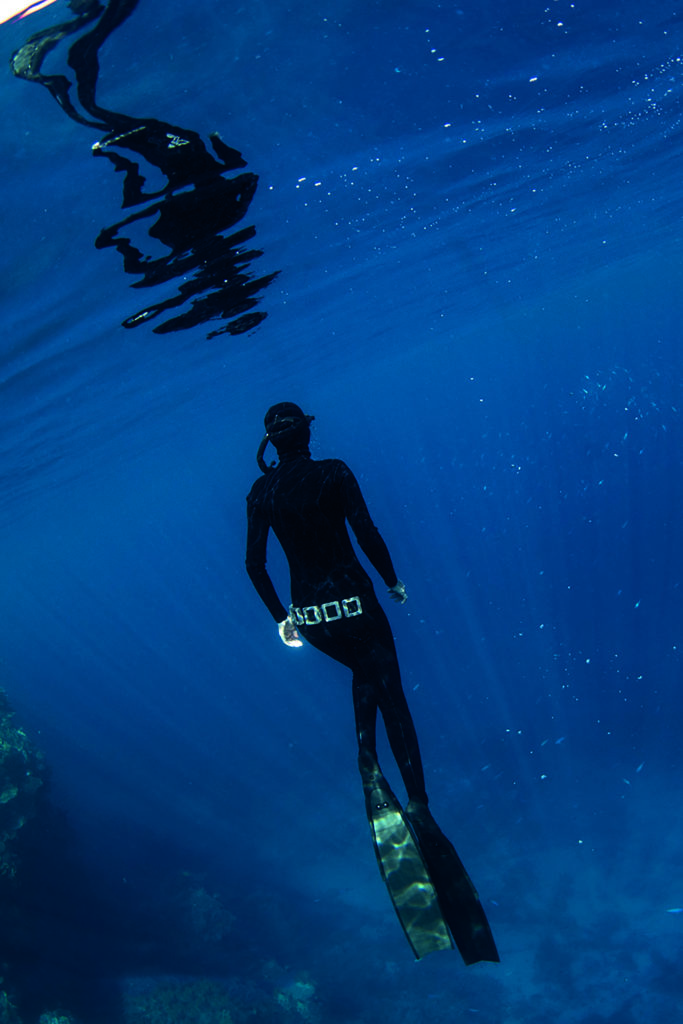Equalisation can prove to be a stumbling block for new freedivers, but breath-hold guru EMMA FARRELL is here with a host of helpful hints – and while equalisation is a different matter for scuba divers, some of this advice can benefit them too
When I talk to people about freediving, one of the most-common questions I hear is: ”How do you know when to come back up?”, as if the limiting factor for depth was breath-hold ability.
Also read: No fins, 1 breath, 4+ lengths, 7th world record
I reassure them that not only do we progress depth so gradually that each new personal best is a breeze, but that the issue that stops most freedivers in the first few metres is their inability to equalise fast enough, and in a head-down position.
Scuba divers will be familiar with their own equalisation issues, but when freediving you don’t have an almost unlimited supply of air to play with, nor do you have plenty of time. Your tank is the air in your lungs and your dive time when starting out is usually less than a minute.
For freediving instructors, therefore, teaching someone how to equalise effectively is their biggest challenge.
After so many years overcoming my own equalisation issues and those of my students, I have yet to find a student who cannot learn to equalise. It might take years in some cases, but with my tips and tricks below, I hope that you too will soon be equalising like a dream.
- Equalise frequently and pre-empt every equalisation
This might sound obvious, but when you’re on a dive there can be so much to think about and look at that we forget to equalise until we feel pain in our ears. At this point we have left it too late and it can then become too difficult. My instructors and I always tell students to pre-empt: equalise before you need to. This means that your eardrums are not put under stress and you get into a good habit of frequent and gentle equalisations. A related tip is to perform a ”prequalisation”, a lovely term coined by Jorgen, one of my instructors. It means equalising at the surface, just before the duck-dive, so that the slight over-pressurisation of the eardrums compensates for the delay in the arrival of the second equalisation at the end of the duck-dive, which can often be at 4-5m.
- Learn the Frenzel equalisation technique.
This very precise and efficient technique uses the tongue to create pressure rather than the diaphragm and lungs. Gentler than the Valsalva and more efficient, it is the primary equalisation technique we teach on freediving courses, and because a large part of learning to freedive involves becoming able to equalise quickly and effectively, it is amazing for scuba divers.
- Don’t force equalisations
If you force your equalisations, particularly when using the Valsalva, you can easily damage your eardrums and create inflammation around the Eustachian tubes. This can lead to reverse block where, on your ascent, the tissues around the Eustachian tubes have become so inflamed that they cannot open to allow the expanding air in the middle ear to pass back to the throat. Be gentle with your equalisation!
- Wear a pair of Doc’s ProPlugs
I, and many of my instructors and students, swear by Doc’s (vented) ProPlugs. These help prevent exostosis, also known as “surfer’s ear”, but I have found that they make equalisation easier for most people who use them. They come in different sizes to fit all ears, and I have a fitting kit so that I can sell the correct-sized ProPlugs to my students. I find these invaluable and will wear them even in the warmest of waters.
- Practise with an Otovent
An Otovent is a simple device that was developed to help children suffering from glue ear. It comprises a small plastic plug with a hole in it, and you block one nostril with it. On the other end is a balloon. Close off the other nostril and try to inflate the balloon using the plugged-up nostril. This opens up the Eustachian tube and is brilliant for equalisation practice on dry land.
- Use a neti pot
Neti pots come in all shapes and sizes. They can look like small teapots, or a bottle for ”sinus-rinsing“’” or similar. The idea is that by cleaning the front sinuses out with saline solution this helps clear mucus and also prevents infection. It is another great way to help the sinuses remain clear and deal with the stuffiness or allergic reactions that can adversely affect equalisation.
- Steam inhalations
If you do have a blocked nose, sticky mucus or dried-out sinuses, get your head over a bowl of hot water with a towel over the top. The warmwater vapour is wonderful for clearing out your passages and soothing your mucus membranes. If you have any infection, you can also use essential oils such as oregano, thyme, eucalyptus, pine, tea tree or simply a couple of drops of olbas oil.
For “on the dive” nose-clearing, one of my instructors also puts tiny bits of Vicks VapoRub inside his nose before he puts his mask on.
- Humidify your environment
If you’re travelling abroad to dive, the flight itself is the worst way to start off your holiday. Overly dry, re-circulated air will dry out all the mucus membranes of your sinuses, dehydrate the body and often give you a lovely bug from one of your fellow-passengers. A great trick to prevent this is to wear a surgical mask or scarf over your nose and mouth throughout the flight so that you are breathing in humidified air. At home in winter with central heating get a humidifier, or water-traps that sit over the radiator to help humidify the air.
- Visit a cranial osteopath
A cranial osteopath is someone who has done at least a four-year osteopathic training programme, followed by further specialist training in cranial osteopathy. I had a 10-year sinus issue that was cured by a few sessions of cranial osteopathy and the treatment has also cured sinus bleeding in one of my instructors and equalisation issues in countless students. If you have exhausted all other options, it’s worth going for a consultation. To find a recommended cranial osteopath in your area, call Stillpoint on 01225 460 106. - Clean up your diet
One of my students spent 10 years learning how to equalise, and the thing that finally cracked it for him was giving up gluten, dairy and refined sugar. Every person will have subtly different dietary needs, but gluten and refined sugar cause inflammation in the body that can affect equalisation, and dairy products can cause extra mucus production. If you’ve tried everything else, try 30 days without gluten, refined grains, processed foods, all sugars and dairy and see if it makes a difference. I guarantee that your health will be improved in ways you won’t have thought possible – and it will most likely help your equalisation as well!
Emma Farrell runs Go Freediving
Also on Divernet: Learn To Freedive With Emma Farrell, Powell & Farrell Dive Into New Roles, Are You A Gas-Guzzler? Solutions For Scuba Divers
